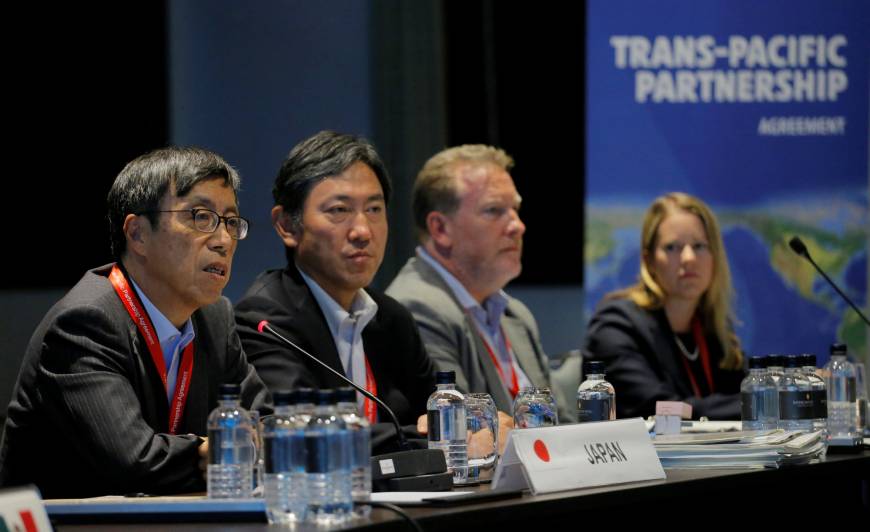Japan pushes for March signing of TPP 11
Nikkei | 26 December 2017
Japan pushes for March signing of TPP 11
The Japanese government is working to have a retooled version of the Trans-Pacific Partnership, the multilateral trade and investment agreement abandoned by the U.S, signed by early March.
But labor rights and other issues remain sticking points to the 11-member TPP taking effect in 2019 as hoped. The debate since U.S. President Donald Trump announced America’s withdrawal early this year has revolved around freezing provisions sought by Washington during lengthy negotiations, which culminated in an agreement under Trump’s predecessor Barack Obama.
Japanese Prime Minister Shinzo Abe’s TPP point man, Toshimitsu Motegi, met Monday with Tran Tuan Anh, the Vietnamese trade and industry minister, in Hanoi. The two men apparently discussed the TPP’s provisions concerning labor disputes, a part of the pact that Vietnam wishes to postpone.
Mexico, on the other hand, prefers an early implementation of the labor dispute provisions. Motegi will travel there early next month to try to smooth out the differences. Meanwhile, Japan is prepared to accept an indefinite freeze of two provisions called for by Malaysia and Brunei.
Chief TPP negotiators from the 11 remaining member nations will meet in Japan in late January to confirm details of the pact. Then comes translating the text into members’ various languages and conducting legal reviews in each nation, after which Tokyo envisions moving toward signing a final agreement in late February or early March. After that, the trade deal enters the ratification stage in each country.
Japan’s goal is to have its parliament ratify a TPP 11 agreement during the legislative session starting in January and typically ending in June "Early March is the time limit for the signing," said a source close to the trade talks.
Abe’s government aims for ratification of an economic partnership agreement with the European Union during a special parliamentary session in the fall. Failure to ratify the TPP in time would produce the difficult situation of juggling two major trade deals at the same time.
Chile also wants a revised TPP signed as soon as possible. Outgoing President Michelle Bachelet wishes to claim the trade agreement as a success for her administration before successor Sebastian Pinera takes office on March 11. Chile has proposed hosting the TPP signing ceremony.
As it stands, the TPP 11 deal would go into effect if six members ratify it. But Canada, with its vague insistence on language allowing it to better protect Canadian culture, remains a major question mark.






